Diplomatic Bluebook 2015
Chapter 3
Japan’s Foreign Policy to Promote National and Worldwide Interests
9.Women
Japan is promoting various measures at home and abroad, with the aim of creating “a society in which women shine,” so that all women can make the most of their individuality and abilities.
(1) The World Assembly for Women in Tokyo (WAW! Tokyo 2014)
WAW! Tokyo 2014 (World Assembly for Women in Tokyo), an initiative launched by Prime Minister Abe, took place on September 12 and 13, 2014. Key Japanese and foreign leaders with valuable insights on the active roles that women can play in the economy participated in the symposium, including approximately 100 guests from six international organizations and 24 countries. Following discussions on initiatives to promote women’s active social participation in Japan and around the world, the participants compiled a 12-point list of recommendations entitled “WAW! To Do,” which was distributed as a UN document (A/69/396). WAW! will be held again in 2015 to provide a forum for comprehensive discussions on women’s issues both in Japan and overseas.
(2) Cooperation with the International Community and Support for Women in Developing Countries
In his address to the UN General Assembly in September 2013, Prime Minister Abe announced that Japan would enhance its cooperation with the international community and its support for developing countries, in order to create “a society in which women shine.” He indicated that Japan would provide over 3 billion US dollars in ODA over three years from 2013 to 2015, which would focus on three key areas: (1) women’s participation in society and capacity building; (2) enhancement of initiatives in the field of health and medical care for women; and (3) women’s participation and protection in the field of peace and security. Within only one year, Japan has already provided approximately 1.8 billion US dollars in support (total for the 2013 calendar year).
(3) Women issues in the UN, and Beijing+20
A. At the 58th session of the UN Commission on the Status of Women, which took place in March, Japan again submitted a draft resolution entitled “Gender Equality and the Empowerment of Women in Natural Disasters”, having previously submitted this resolution in 2012. Again this year, the resolution was adopted by consensus. In this resolution, Japan emphasized the importance of creating resilient societies that can withstand disaster and of promoting women’s participation in society as a means of achieving this. In addition, it stressed that it would link current initiatives with various post-2015 processes, including the third UN World Conference on Disaster Risk Reduction (in Sendai) and the World Humanitarian Summit.
B. In addition, Japan undertook a progress review to identify the outcomes achieved and challenges faced as a result of its efforts to meet the targets and objectives set out in the Beijing Declaration and Platform for Action adopted in 1995 at the Fourth World Conference on Women. The results were submitted to the UN Entity for Gender Equality and the Empowerment of Women (UN Women) in December in the form of a report entitled “Report on Implementation of the Beijing Declaration and Platform for Action (1995) and the Outcomes of the 23rd Special Session of the General Assembly (2000) in the context of the 20th Anniversary of the Fourth World Conference on Women and Adoption of the Beijing Declaration and Platform for Action.”
C. Between 2013 and 2014, Japan increased its contribution to UN Women fivefold. Japan intends to further strengthen its cooperation with this body, particularly via the new UN Women Japan Liaison Office that opened in 2015.
D. In September, Japan submitted to the UN its 7th and 8th periodic report under the Convention on the Elimination of All Forms of Discrimination against Women (CEDAW). Since 1987, Japan has provided members to the Committee on the Elimination of Discrimination against Women; the current member, Yoko Hayashi, was re-elected in June.
(4) Initiatives Focused on Sexual Violence in Conflict
A. As Prime Minister Abe mentioned in his address to the UN General Assembly in September 2014, the problem of sexual violence as a weapon of war must not be overlooked. Japan attaches importance to discussions in international forms and partnerships with international organizations such as UN Action and the UN Special Representative of the Secretary-General on Sexual Violence in Conflict, to prevent sexual violence as a weapon and because of the importance of supporting victims. At the same time, Japan is itself engaging in more proactive efforts in this field, to make the 21st century a world with no human rights violations against women.
B. Zainab Hawa Bangura, Special Representative of the Secretary-General (SRSG) on Sexual Violence in Conflict, visited Japan in September to participate in WAW! and held talks with Prime Minister Abe and Foreign Minister Kishida. Japan also contributed 2.15 million US dollars in financial support to the SRSG’s Team of Experts on the Rule of Law and Sexual Violence in Conflict for the first time, becoming its biggest donor. In addition, Japan contributed to the Trust Fund for Victims established by the International Criminal Court (ICC) for the first time, allocating 400,000 euro of its 600,000 euro contribution to measures to combat violence against women in conflict and working on measures to help victims of sexual violence in conflict.
C. In June, the Global Summit to End Sexual Violence in Conflict was held in London as part of PSVI (the Preventing Sexual Violence Initiative). It was co-hosted by British Foreign Secretary William Hague and Angelina Jolie, Special Envoy for the UN High Commissioner for Refugees, with the aim of fostering global momentum for the eradication of sexual violence in conflict. Representing Japan, State Minister for Foreign Affairs Nobuo Kishi took part in this summit, delivering a powerful message of support for efforts to prevent sexual violence in conflict.
D. Within Japan, the PSVI Japan Platform was launched in June, bringing together representatives of relevant ministries and agencies (MOFA and the Secretariat of the International Peace Cooperation Headquarters, Cabinet Office), JICA, the UN Asia and Far East Institute, the International Committee of the Red Cross (ICRC), and relevant NGOs to consider cooperative frameworks and initiatives for nurturing experts. In November, MOFA co-hosted a public symposium with the ICRC, entitled “Sexual Violence in Armed Conflict: Main Challenges and Responses” (at Sophia University). This symposium was attended by representatives of international organizations, the government, experts, and the general public, who discussed and gained a deeper understanding of the current state of sexual violence in conflict in the international community and the challenges faced when dealing with this issue.
(5) Action Plan for UN Security Council Resolution 1325>
To be more effective in achieving a peaceful society, it is vital to ensure women’s participation at all stages in conflict prevention, conflict resolution, and peacebuilding, bringing the perspective of gender into the mainstream. Accordingly, since September 2013, Japan has been formulating its National Action Plan (NAP) on Women, Peace and Security, to implement UN Security Council Resolution 1325 and other relevant instruments.
Japan’s NAP consists of five core pillars (Empowerment and Participation; Prevention; Protection; Humanitarian and Reconstruction Assistance; and Monitoring, Evaluation, and Review) and incorporates detailed indicators. This NAP is characterized by the fact that not only relevant ministries and agencies but also members of the public are involved in its preparation, helping to determine such matters as the structure of the NAP, the elements that should be included, and the approach to monitoring and evaluation. Furthermore, following public meetings in five locations, including Okinawa Prefecture, the NAP was referred for public comment. Having gone through this series of processes, the NAP is due to be completed in early 2015. It is hoped that, once the NAP is finalized, members of the public will also participate in subsequent processes, such as monitoring and review.
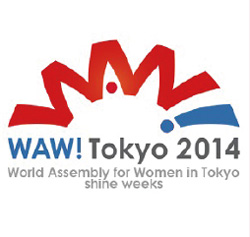
For two weeks before and after the international symposium, “World Assembly for Women in Tokyo: WAW! Tokyo 2014” (WAW!), various women-related events were held as “Shine Weeks” events all over Japan. Some of the foreign participants who took part in WAW! also joined these local events. In this special feature, we will showcase the success of the “Shine Weeks” events across the nation.
Shine Weeks
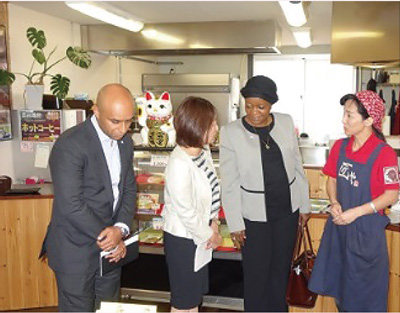 Ms. Bangura, Special Representative of the Secretary-General on Sexual Violence in Conflict, visiting the disaster-afflicted area in Tohoku region, and participating in a “Shine Weeks” event (Miyagi Prefecture)
Ms. Bangura, Special Representative of the Secretary-General on Sexual Violence in Conflict, visiting the disaster-afflicted area in Tohoku region, and participating in a “Shine Weeks” event (Miyagi Prefecture)
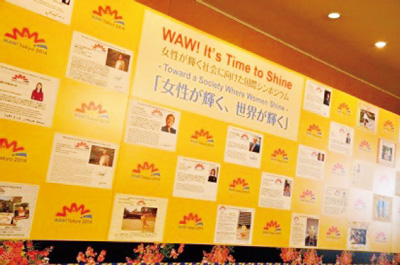 Messages of support posted on the board
Messages of support posted on the board
On the side of the WAW! symposium that took place on September 12 and 13, 2014, a series of “Shine Weeks” events were held during the two weeks all over Japan. The purpose of these Shine Weeks was to promote the spirit of the symposium by encouraging the creation of a society where women can shine. At that time, a video message by Prime Minister Shinzo Abe was presented. Anyone was welcome to participate freely and creatively, and various events such as movie festivals and community gatherings were also independently planned and held by diverse women’s groups, including groups interested in agriculture and space exploration. Events were advertised on Facebook of WAW! as well as presented on the MOFA homepage. Overall, over 120 WAW! side-events were held throughout Japan, demonstrating the great public interest in the promotion of women’s active participation in society.
Among the “Shine Weeks” events, in particular those organized by WAW! participants, some aimed at creating bonds between foreign guests, municipalities and universities, and thus contributing to efforts to promote women’s involvement in local communities. A total of 11 local events was held, including in Miyagi, Saitama, Kurashiki and Fukuoka. The organizers of these events were able to invite guests with whom they would not otherwise be able to interact. As such, they found these events very valuable and were keen to be involved again the following year.
We hope that WAW! 2015 can contribute even more to promoting opportunities throughout Japan for women to shine in society.
Gender Mainstreaming Division
― Roundtable Discussion on Paper by Five Female Ambassadors ―
Many female employees have made their careers in the Ministry of Foreign Affairs (MOFA). They make up about 30% of all employees, and are playing active roles on the global stage. This article features five female ambassadors who represent the “face” of Japan in countries around the world. We spoke to them about their work, and asked for their messages to all the women who will step out into the international community in future.
Q1. How do you feel to be working as a female ambassador?
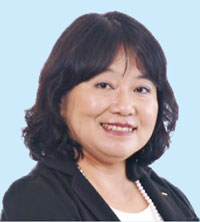 Keiko Tanaka, Ambassador of Japan to Uruguay
Keiko Tanaka, Ambassador of Japan to Uruguay
Ambassador Tanaka: In Uruguay, where I serve as ambassador, one-third of the Cabinet ministers are women. There are also many female ambassadors from countries around the world, so quite rarely am I conscious of being “a woman.” However, as there are no other female Asian ambassadors, I stand out during gatherings with dignitaries from each country.
Ambassador Iki: The state religion of Brunei, where I work, is Islam. However, the government has clearly demonstrated its stance of not giving any special treatment to women, thereby allowing us to do our work comfortably. I am also regarded favorably as the Ambassador of Japan, which has friendly relations with Brunei.
Ambassador Shiraishi: In Lithuania, the President and the Speaker of the National Assembly are both women. Since about three years ago, being a female ambassador has worked to my advantage, such as being invited to informal lunch gatherings of female ambassadors with the President. I have heard that the ambassador of a certain country made the recommendation to the headquarter to appoint a female ambassador to succeed the position.
Ambassador Nishimura: In the sense of developing interpersonal connections amongst the diplomatic corps, our strength lies in having the ability to converse with other women at meal gatherings that include the spouses of diplomats, and on other occasions. As the first female ambassador from Japan, I also feel motivated to change the image of Japan.
Ambassador Shino: Iceland, where I serve as the ambassador, has the smallest gender gap in the world. It also boasts high birthrates. From my personal perspective as a woman who has continued to work while raising children, I feel that I will be able to make some new discoveries here.
Q2. Could you tell us some of the difficulties that you have encountered in your work, and some of the issues that you feel should be addressed by MOFA?
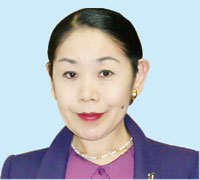 Atsuko Nishimura, Ambassador of Japan to Luxembourg
Atsuko Nishimura, Ambassador of Japan to Luxembourg
Ambassador Nishimura: In the course of my work, I have not experienced any difficulties that arose only from being a woman. Of course, I have had to spend long periods of time working overseas, and work late into the night such as during Diet sessions, making it necessary to put extra effort into striking a balance between family life and work. However, I think that MOFA is a workplace where situations of those who have to balance work with childcare or elderly care responsibilities are accepted and understood.
Ambassador Shiraishi: On balancing work with raising children, I have received help from many people, including my family and babysitters. Although I was anxious the first time I brought my children to assignment overseas, it turned out easy to find babysitters and to adjust my working hours. I actually got to spend more time with my children. I think it was good to have taken the first bold step forward.
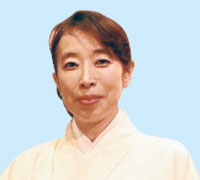 Mitsuko Shino, Ambassador of Japan to Iceland
Mitsuko Shino, Ambassador of Japan to Iceland
Ambassador Shino: Working at MOFA involves working overseas. Returning to work after a period of childcare leave feels similar to being transferred back to Japan from an overseas posting, so I think that the ease of returning to work is one of the merits of working at MOFA. However, I did encounter difficulties in securing a good educational environment for my children, when I did not know when or where I would be working next. Particularly in Japan, where there are few friends who share my difficulties, I often had to face head-on various challenges as a parent during the process of my children’s growth.
Ambassador Iki: I started my career in the Ministry of Health, Labour and Welfare, and I was transferred to different parts of Japan twice during the period when I was raising my children. Each time, I either brought them along with me, or took up the assignment alone. In order for women to play active roles in the field of diplomacy going forward, I think that it is important to enhance support measures that can allow female diplomats to work overseas at ease, including during periods when they are raising their children.
Ambassador Tanaka: Based on my experience of working in the private sector, I think that teleworking systems have significant merits for both women and men. I also think that it would be better if the organization could take a flexible approach, as much as possible, to match the employees’ needs with regard to work location and other factors.
Q3. Last but not least, could you give us a message for women who aim to play active roles in the international community in future?
Ambassador Tanaka: I think that the ease with which we can gain trust is the strength of Asian women in the international community. Although there is a tendency to think that Japanese women playing active roles in the international community are still the minority, I hope that you can take advantage of that and take more and greater leaps right into their midst.
Ambassador Nishimura: Encountering a wide variety of people in various places around the world, and having wonderful experiences, will become precious assets in our lives. I hope that you will take up the challenge of standing on large and important stages, and that the experience will lead to personal growth and the discovery of new worlds.
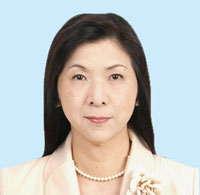 Noriko Iki, Ambassador of Japan to Brunei
Noriko Iki, Ambassador of Japan to Brunei
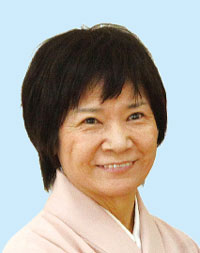 Kazuko Shiraishi, Ambassador of Japan to Lithuania
Kazuko Shiraishi, Ambassador of Japan to Lithuania
Ambassador Iki: I think that it is important not to limit the possibilities of your career “because you are a woman” or “because you have children.” At the same time, it is also important not to give up on major life events such as marriage and having children simply because “work is too tough.” Even in situations where it is difficult to achieve work-life balance, having the will and motivation to pursue possibilities, and constantly upgrading yourself so that you can grab the next chance to play an active role, will open up the roads to the future.
Ambassador Shino I think that MOFA is the best workplace for women. On the one hand the contents of the work will not make one to be conscious of one’s own gender, but on the other hand it is quite common to draw attention at international conferences all the more because you are a woman. I think there are places where we can shine amidst an environment of diverse values.
Ambassador Shiraishi: The international community is not only a place that allows us to make full use of our own capabilities, but also one where we can refine and improve on these capabilities by building up many experiences and tackling new challenges. I hope that you will all have faith in yourselves, and develop your full potential. My motto is “home is where you make it.” Every country has its own culture and history, and it is quite a joy to learn about them and come into contact with variety of people.


